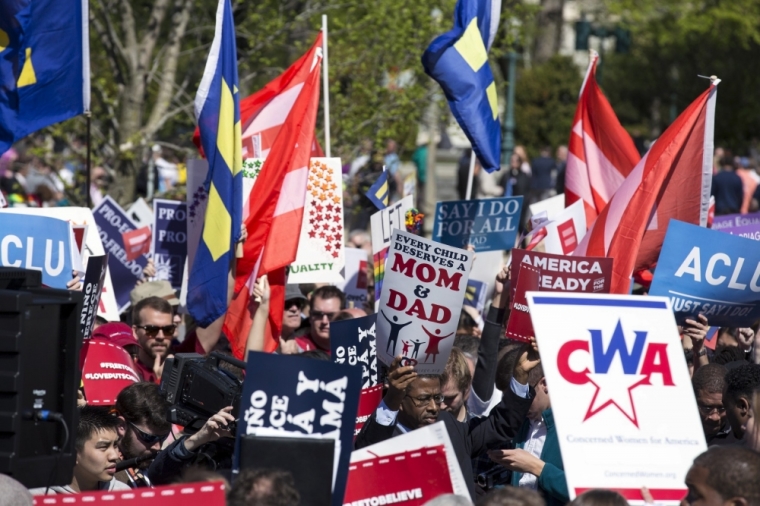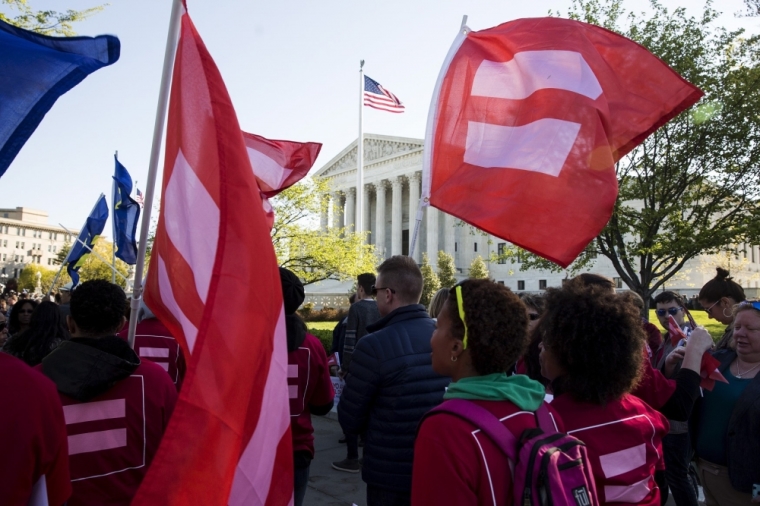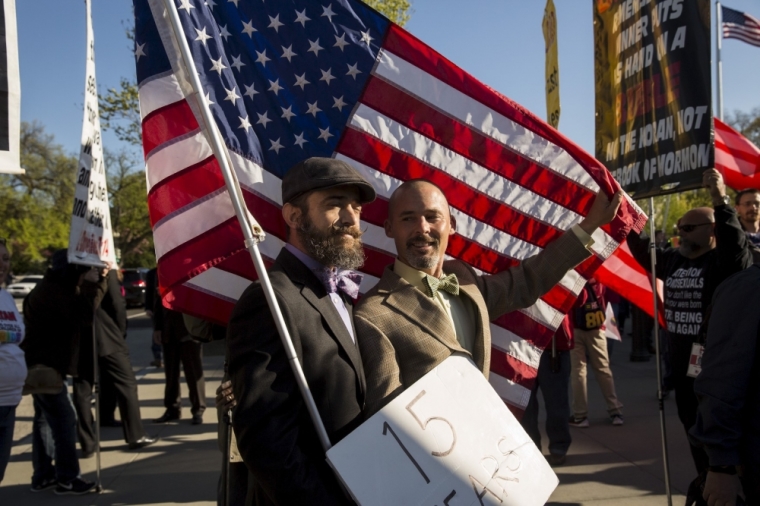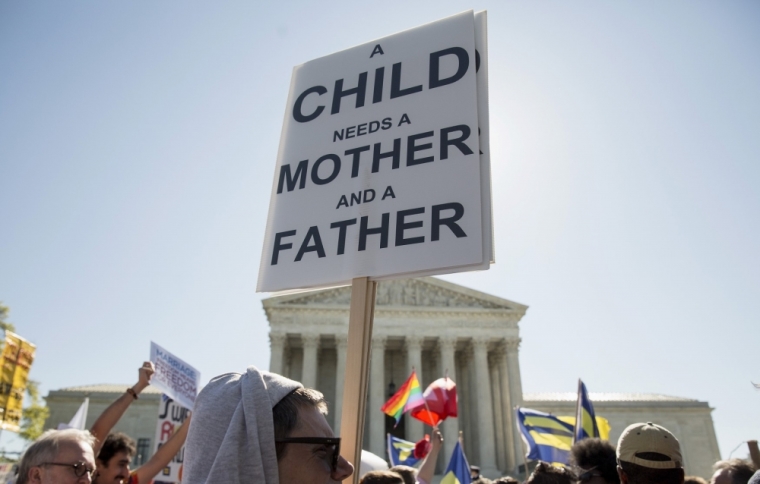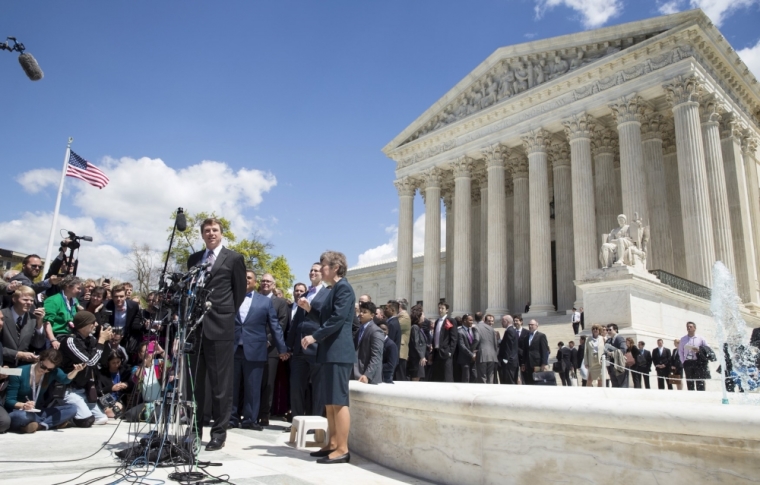Swing Vote Justice Kennedy 'Not Persuaded' by LGBT Arguments at Supreme Court Hearing, Ryan Anderson Says
As the Supreme Court's oral arguments on whether states should be constitutionally obligated to issue same-sex marriage licenses adjourned Tuesday afternoon, Heritage Foundation's Ryan Anderson said in a news conference outside the building that the likely swing vote justice, Anthony Kennedy, was "not persuaded" by LGBT arguments.
As many are predicting the Supreme Court's decision in June to come down to a narrow 5-4 vote, Justice Kennedy has been pegged again as the justice who is likely to decide which way the court leans in making the tough decision on whether the 14th Amendment requires states to uphold same-sex marriages and validate same-sex marriage licenses given out by other states.
Kennedy pointed out in the hearing that "one of the problems" in this case is that the traditional man-woman definition of marriage has been the norm for "millennia," while the LGBT definition of marriage as being a union between two loving and consenting adults has only existed inside the United States for a decade, as Massachusetts legalized same-sex marriage in June 2004.
"One of the problems is when you think about these cases, you think about words or cases, and the word that keeps coming back to me in this case is millennia, plus time," Kennedy said. "But on a larger scale, ... it was about about the same time between Brown and Loving as between Lawrence and this case. It's about 10 years."
Kennedy further explained that it would be difficult for a bench of unelected judges to issue a national ruling on this highly-debated issue when there is only 10 years of same-sex marriage for the court to examine.
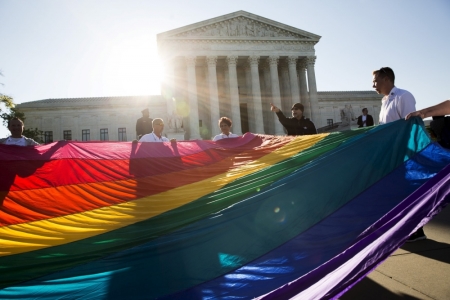
"And so there's time for the scholars and the commentators and the bar and the public to engage in it. But still, 10 years is, I don't even know how to count the decimals when we talk about millennia," Kennedy added. "This definition has been with us for millennia. And it's very difficult for the court to say, 'oh well, we know better.'"
Speaking after the hearing, Heritage Foundation senior research fellow Ryan Anderson, who attended the arguments, asserted that Kennedy's concern about redefining a millenia of marriage was not eased by the subsequent response of pro-LGBT attorney Mary L. Bonauto, who stated that the issue of gay rights in America has been contested for over a century.
"Anthony Kennedy asked the next question and he says 'You want us to throw away a millenia of marriage as the union of a man and a woman based on 10 years of same-sex marriage,'" Anderson told the raucous crowd outside the court building. "Anthony Kennedy was not persuaded."
Cathy Ruse, who is a senior legal fellow at the Family Research Council and also observed the hearings, said that the lawyers on the LGBT side did not want to acknowledge the "history" of marriage argument.
"The fact that [Kennedy] is bringing up that distinction, shows that he is actually thinking of it in those terms, which the other side did not want to acknowledge that at all," Ruse told CP. "They didn't want to acknowledge the millennia and the importance of the history on the issue."
Although Kennedy was not sold that a "millennia" of traditional marriage can be redefined by the Supreme Court, that didn't stop him from asking difficult questions to attorney John Bursch, who argued in defense of the state of Michigan and other states with same-sex marriage bans.
Kennedy asked Bursch, who pushed the importance of the state holding a child-rearing view on marriage, why same-sex couples do not deserve the "same ennoblement" in their relationships.
Even though many social conservative attorneys and activists feel that Kennedy's "millennia" remark indicates that he may vote in favor of states' rights, Jordan Lorence, senior counsel with the Alliance Defending Freedom, told The Christian Post after the arguments that it was difficult to tell which side Kennedy is leaning.
"Those were good questions that [Kennedy] was asking but there were other times where [Bursch] was up and I thought [Kennedy] was asking things that would indicate that he might be leaning the other way," Lorence said. "I think it was very hard to read Justice Kennedy on this, except to say that I think he is giving serious consideration to the views on both points, which means it is probably going to be a five to four vote. For the other eight justices, where they came down was pretty clear for or against the state laws. We are just going to have to see."
Ruse additionally pointed to another Kennedy remark as an indication that he is "not comfortable" creating a new constitutional right.
"Justice Kennedy raised the issue of the [Washington vs.] Glucksberg case, which is the case in which the Supreme Court said no to the effort to make assisted suicide a constitutional right. Kennedy brought up Glucksberg. Kennedy voted no in Glucksberg. 'No, we are not going to create a new constitutional right,'" Ruse explains. "So, he brings up Glucksberg in this context. That is interesting. What he says when he does is 'What about our obligation to define a fundamental right in its narrowest terms,' and he mentions Glucksberg. That says to me that he is uncomfortable, potentially not comfortable creating a new constitutional right because we don't have it defined in its narrowest terms."
Jeff Mateer, general counsel at the Liberty Institute, told the crowd after the hearing that he foresees the court ruling in June to allow the state's to continue deciding their own marriage laws.
"It was encouraging and prayers have been answered and you should feel encouraged. ... I was especially encouraged that several of the justices recognized that religious liberty is a key value," Mateer said. "In the end, what I think we are going to see that the court is going to issue a decision that respects the right of the democratic process and will send this case back to the states where it belongs and that we respect religious liberty and we do have the freedom to believe, to speak and act upon our beliefs."









